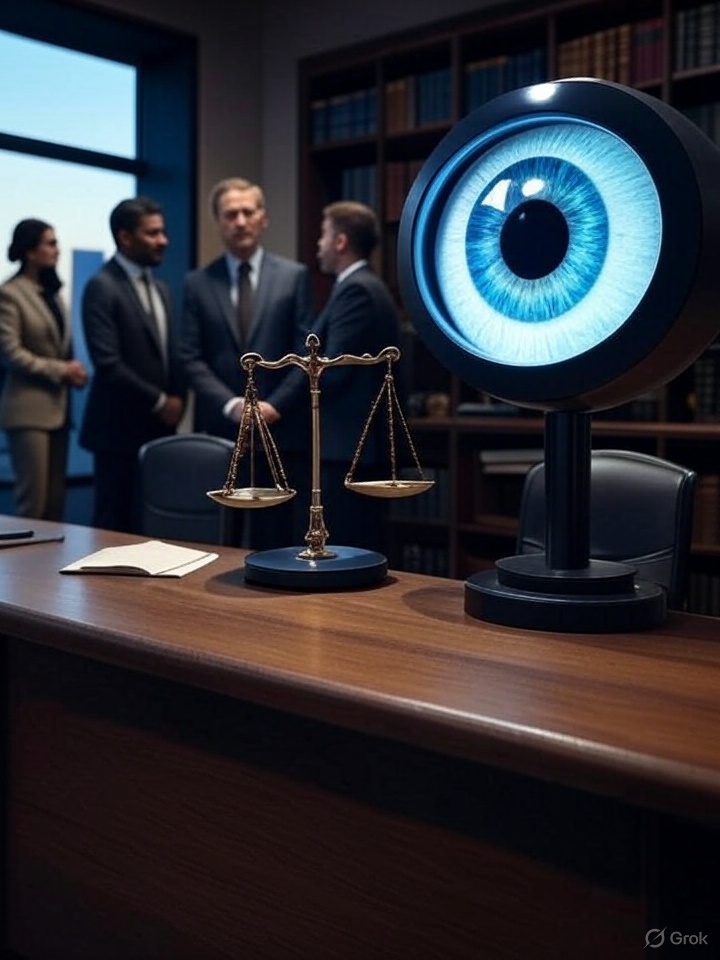The Case Against Spying on Your Employees With Apps
Introduction: Why This Matters for Attorneys
The legal profession depends on trust—between attorney and client, and within firms themselves. Yet, in an era of remote work and rising digital oversight, many organizations are tempted by surveillance apps that promise improved productivity and accountability. For attorneys, however, these tools pose significant risks: they can erode confidentiality, create liability exposure, and weaken the very trust on which firms are built. This article examines why surveillance apps are not only ineffective but potentially harmful for law practices.
The Growing Trend of Employee Surveillance
Remote and hybrid working arrangements have fueled the rapid adoption of monitoring software. These platforms range from keystroke loggers and activity trackers to full desktop screen-capture tools. While marketed as productivity solutions, they often cross into invasive territory, recording personal activity and creating digital profiles of employees. For attorneys, whose work is inherently confidential, this creates unique complications that go beyond standard employee-management concerns.
Legal Risks of Surveillance in Law Firms
Attorneys must navigate not only employment law but also professional standards of conduct. Surveillance software that captures client communications or sensitive case files could result in ethical violations, breaches of confidentiality, or even malpractice claims. Privacy laws at both state and federal levels—such as the Electronic Communications Privacy Act (ECPA) and state-specific workplace monitoring statutes—further complicate matters. Deploying these tools without legal vetting could expose firms to litigation.
Impact on Attorney-Client Privilege
Employee surveillance poses a unique threat to attorney-client privilege. Screen captures, keystroke records, or audio monitoring can inadvertently expose confidential information to third-party vendors. Even if data remains within the firm, storing these records creates additional risk vectors for breach or subpoena. The sanctity of privilege is absolute in law—and surveillance tools threaten to undermine it at its core.
Ethical Implications for Legal Practices
Beyond statutory concerns, attorneys are bound by codes of ethics that emphasize integrity, fairness, and respect for client and colleague privacy. Monitoring employees in a covert or overly intrusive way runs counter to these obligations. The ABA’s Model Rules of Professional Conduct stress the importance of supervising legal work responsibly; surveillance software may create an illusion of control while eroding ethical credibility within the firm.
Does Surveillance Really Improve Productivity?
Studies show that surveillance rarely achieves its intended goal. Employees subjected to monitoring often feel demoralized, distrusted, and disengaged. Rather than boosting productivity, these tools foster resistance and workarounds. In law firms, where intellectual work and judgment call for focus and autonomy, surveillance can degrade performance and innovation rather than enhance it.
Trust as the Foundation of Law Firm Success
Successful legal practices thrive on trust—internally and externally. Attorneys must trust associates, paralegals, and staff to handle matters responsibly. Employees, in turn, need assurance that their work is respected. Introducing surveillance apps undermines this equilibrium, creating suspicion and damaging morale. In contrast, firms that prioritize transparent time management and accountability systems build stronger, more cohesive teams.
Alternatives to Surveillance Software
Rather than resorting to surveillance, law firms can adopt transparent, ethical methods for tracking productivity. Tools such as passive time-tracking software (like Chrometa), project management dashboards, and clearly defined billing practices allow employees to demonstrate accountability without compromising privacy. These alternatives strike a balance between oversight and autonomy while respecting professional obligations.
Case Study: Surveillance Backfires
Consider a mid-sized firm that introduced keystroke monitoring to address perceived underperformance. Within weeks, morale plummeted, associates disengaged, and two key litigators left for competitors. The firm faced reputational damage and eventually abandoned the system. In contrast, firms that implement transparent tracking solutions often report higher satisfaction, improved billing accuracy, and greater client trust.
Conclusion: The Case Against Spying
Employee surveillance apps may promise control, but they carry immense risks for attorneys: legal liability, ethical breaches, compromised privilege, and damaged trust. The very qualities that make law firms successful—confidentiality, professionalism, and collaboration—are jeopardized by covert monitoring. Instead, attorneys should adopt tools that foster transparency, accountability, and trust. By doing so, law firms not only protect themselves from liability but also cultivate a culture of integrity and performance.
Call to Action: Ready to implement a transparent, attorney-focused time tracking solution that respects confidentiality? Explore Chrometa today and discover how effortless, ethical time tracking can transform your practice.
Similar Stories
Enterprise
5 Resources to Boost Your Freelance Productivity
The modern freelancer has a lot of plates to spin on a daily basis in order to succeed – and there never seems to be enough hours in the day. Those that use their limited time most efficiently will blow past the competition and make an impact in their chosen market. . Read More
Enterprise
6 Tips to Maintain a Healthy Work-Life Balance during COVID
Confinement, lockdown, quarantine, shelter-in-place… .... Read More




